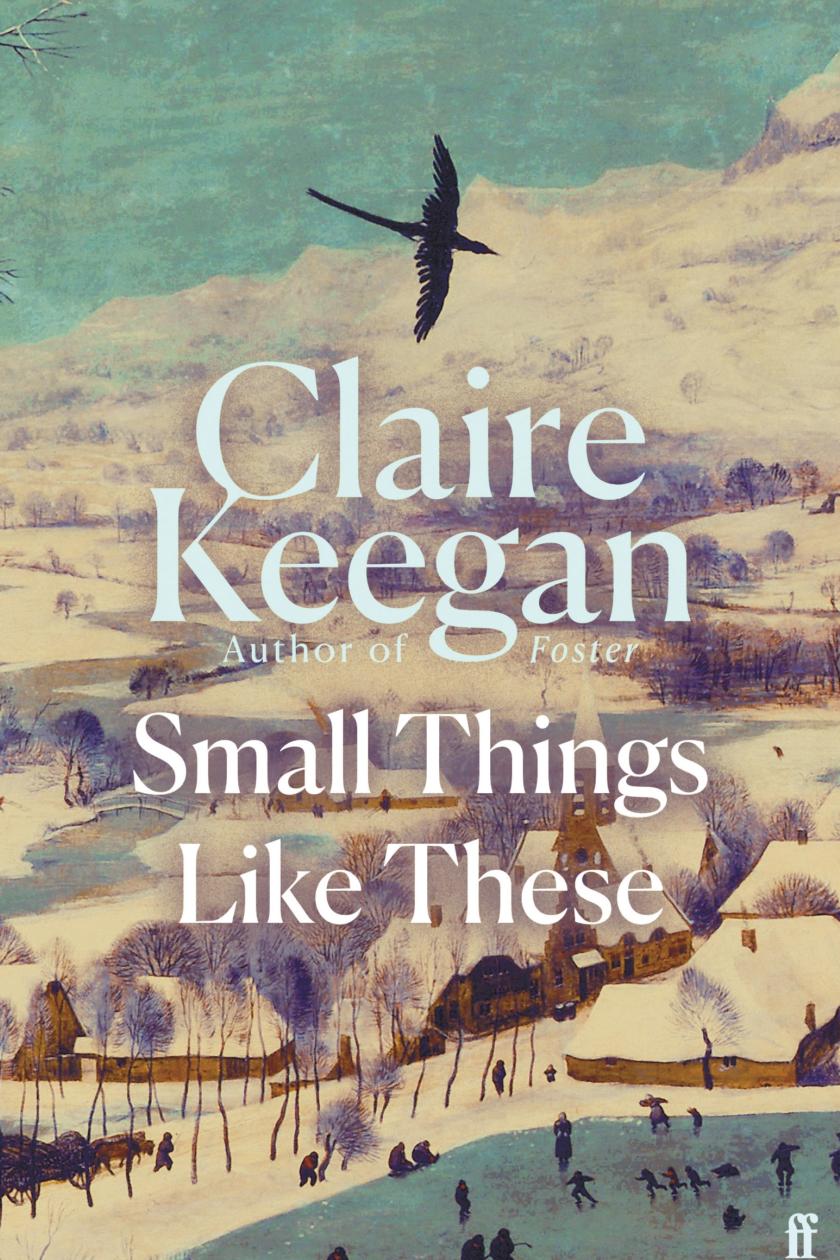
In just over 100 pages, Small Things Like These taps into a myriad of feelings. Never a writer to waste a word, Claire Keegan pours emotion into every sentence, in this short yet evocative portrait of rural Ireland in the 1980s.
The slim volume follows coal merchant and family man Bill Furlong as he completes his rounds in the final days before Christmas. While completing a delivery at the nunnery, Furlong makes an unexpected, disturbing discovery in the coal shed, prompting his past and Ireland’s past to rise up to meet him. There is a Dickensian kind of sentiment to this plot: Bill’s great kindness, his permanbulations around the town and even his name, suggestive of his livelihood, are perhaps more than a slight gesture towards the Victorian king of the Christmas story. Even more suggestive yet, however, is the darkness at the heart of the story, and the reckoning of one man’s morality during Christmas time.
As Furlong makes his deliveries, rumours circulate about what goes on at the convent outside of town and the “training school” attached to it – some say that the girls themselves are “of low character who spent their days being reformed”, while others “swore that the place was no better than a mother-and-baby home went in to be hidden away … sent their by their own people after their illegitimates had been adopted by rich Americans”. This novel is dedicated to the women and children who suffered in mother and baby homes, and it is the cruelty of these establishments that form the story’s darkness. In her note on the text, Keegan explains the realities of the Magdalene laundries: that they were run and financed by “the Catholic Church in concert with the Irish state”, and that around 30,000 women were incarcerated in them. Furlong’s discovery confirms the local gossip: he finds a young woman, separated from her baby, cowering and cold, locked away in the coal shed.
The central tension comes from whether Furlong will act or not act on his discovery. Can he “rescue” the woman in the coal shed? Every single sentence in this novel has a purpose, and Keegan’s imagery is simple but often devastating. When Furlong finds the woman in the darkness of the coal shed, his torch seeks out her choppy, badly cut hair and overgrown toenails. As he diverts the torch’s beam to afford her some dignity, he finds her excrement. Another deeply affecting image is the same woman later sitting in a lumpy cardigan, breast milk leaking through her clothes, asking for her baby as the nuns refuse to answer.
Furlong is sensitive, too, to how thin the line is between ruin and excellence: as pointed out by another character, there is only a wall separating his daughters’ school and the laundry. Her short speech to Furlong where she maintains that “they belong to different orders … but believe me they’re all one” reminds both Furlong and the reader of the insidious power of the Catholic church during this time. She remarks that “surely you must know that these nuns have a finger in every pie” – this is the closest the novel comes to being heavy handed with its subject matter, but yet it still functions well as an important reminder.
The novel’s simple style functions as a tightly woven surface over a heart of significant depth. With careful reading, we can understand quite how far the church has permeated these lives – religious language is strewn throughout the novel to describe even the most mundane activities. In the run up to Christmas, Eileen (Furlong’s wife) “promptly baptised [the Christmas cake] with a Baby Power”, and Furlong remarks to himself how he is “a man amongst women”, mirroring the language of the Rosary. Furlong does not succumb to the cliches of a Dickensian Christmas figure because he is given significant psychological depth and means with which to grapple with the power of the Church in his community. Born to a 16-year-old mother and an unknown father yet raised in a wealthy Protestant home, he is in a unique position to interrogate the cruelty of the Catholic church towards these young women and children. It is here where his past and the woman’s present converge: Furlong’s main disturbance is rooted in the knowledge that it could have been his mother he found in the convent’s coalshed, and how, in a sliding-doors effect, different his life could have been.
Simple yet oblique, short yet extraordinarily deep, this is a small gem of a novel that in such a small amount of space manages to capture an incredibly complicated, tragic period of Ireland’s history. Keegan masterfully weaves the reality of the Magdalene laundries around the sentimental bones of a Christmas story – as each sentence contains reams of history, both recorded and informal, the sentimentality is extinguished, leaving behind a morality tale that is at once brutal but respectful of its harrowing subject matter.






